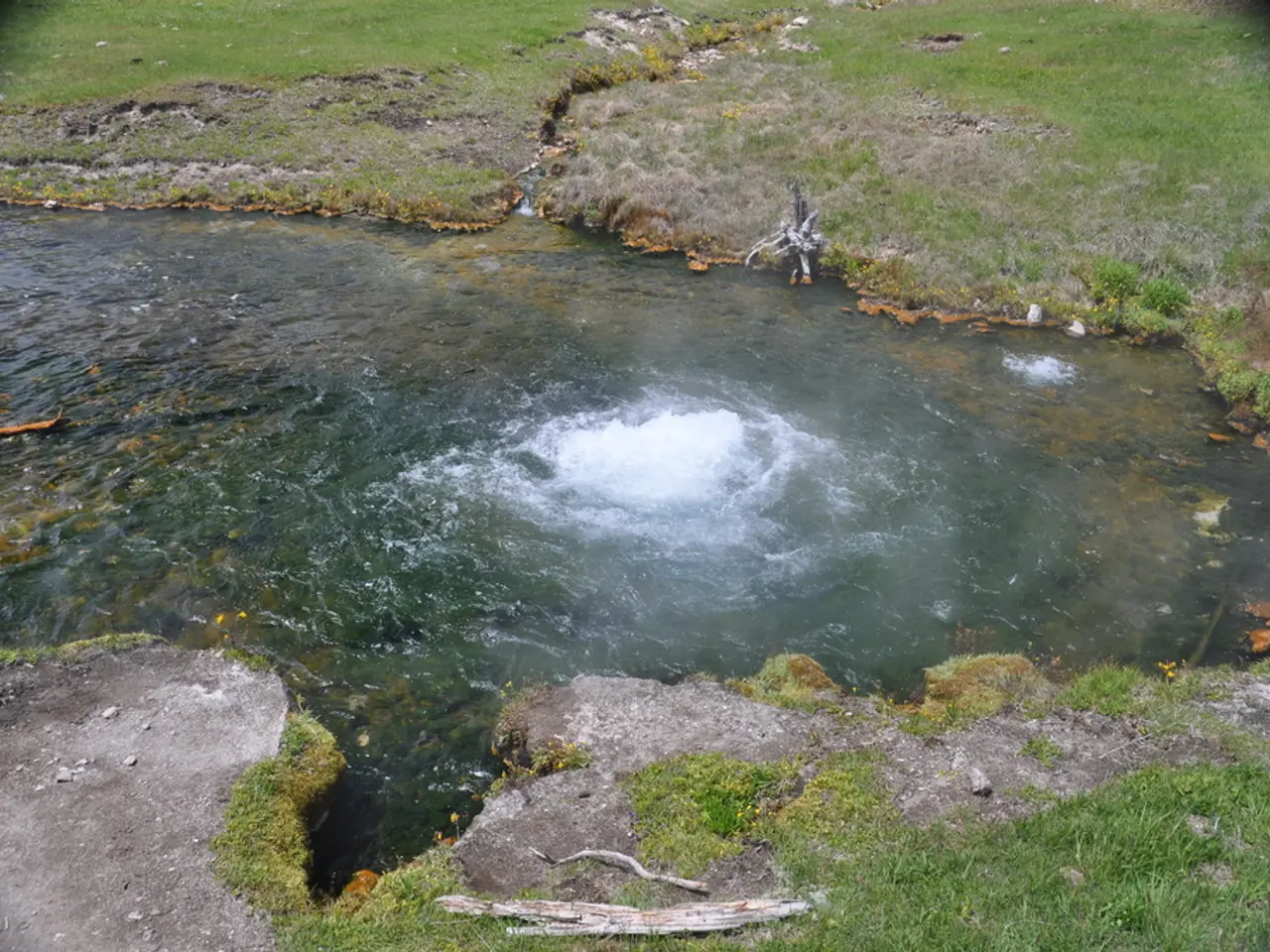Government grant approval for gas extraction ventures in the North Sea, particularly in the region surrounding Borkum Island. - Government Greenlights Gas Extraction on North Sea Island Borkum
In a move that has sparked controversy, plans for gas extraction off the North Sea Island of Borkum have been revived following the Russian attack on Ukraine. The agreement, signed by the Lower Saxony State Agency for Mining, Energy and Geology (LBEG) and the Dutch company One Dyas, has been met with criticism from environmental groups, most notably the German Nature Conservation Ring (DNR).
The project, as per the coalition agreement guidelines, aims to utilise the conventional gas potential in Germany. However, the DNR has expressed sharp words against the agreement, claiming it prioritizes economic interests over environmental and climate protection. The organisation argues that the gas extraction project undermines the Federal Government's own climate goals, instead of expediting the exit from fossil energies.
The agreement provides a legal framework for cooperation between the Netherlands and Germany for the gas extraction project. The drilling will partly extend into German territory under the seabed. Notably, the Federal Government and the Federal Ministry of Economics were involved in the signing of the agreement.
The DNR also criticises a lack of public participation in the gas extraction project. Katherina Reiche, a member of the Federal Cabinet, participated in the signing of the agreement at the North Sea Island, Borkum.
The Dutch government has been praised as a "strong partner in energy supply" by the German ministry. However, the DNR maintains its stance, stating that the gas extraction project will cement new gas infrastructure for decades, potentially having detrimental effects on marine ecosystems and contributing to carbon emissions.
Before the Russian attack on Ukraine, these plans were largely shelved. The implications of this revival, in terms of energy security and environmental impact, are yet to be fully understood and debated. It is expected that the project will utilise the potential of conventional gas extraction in Germany, but the extent of its environmental and climate implications remains a matter of concern for many.
- Despite the controversy and criticism from environmental groups like the German Nature Conservation Ring (DNR), the gas extraction project off the North Sea Island of Borkum, a cooperation between the Lower Saxony State Agency for Mining, Energy and Geology (LBEG) and the Dutch company One Dyas, prioritizes vocational training in resources, finance, and energy sectors to ensure efficient and sustainable operations.
- In light of the revived plans for gas extraction in response to the Russian attack on Ukraine, the DNR continues to emphasize the need for increased vocational training programs that focus on renewable energy sources and sustainable industry practices, as a means to align with the Federal Government's climate goals and minimize environmental impact.




